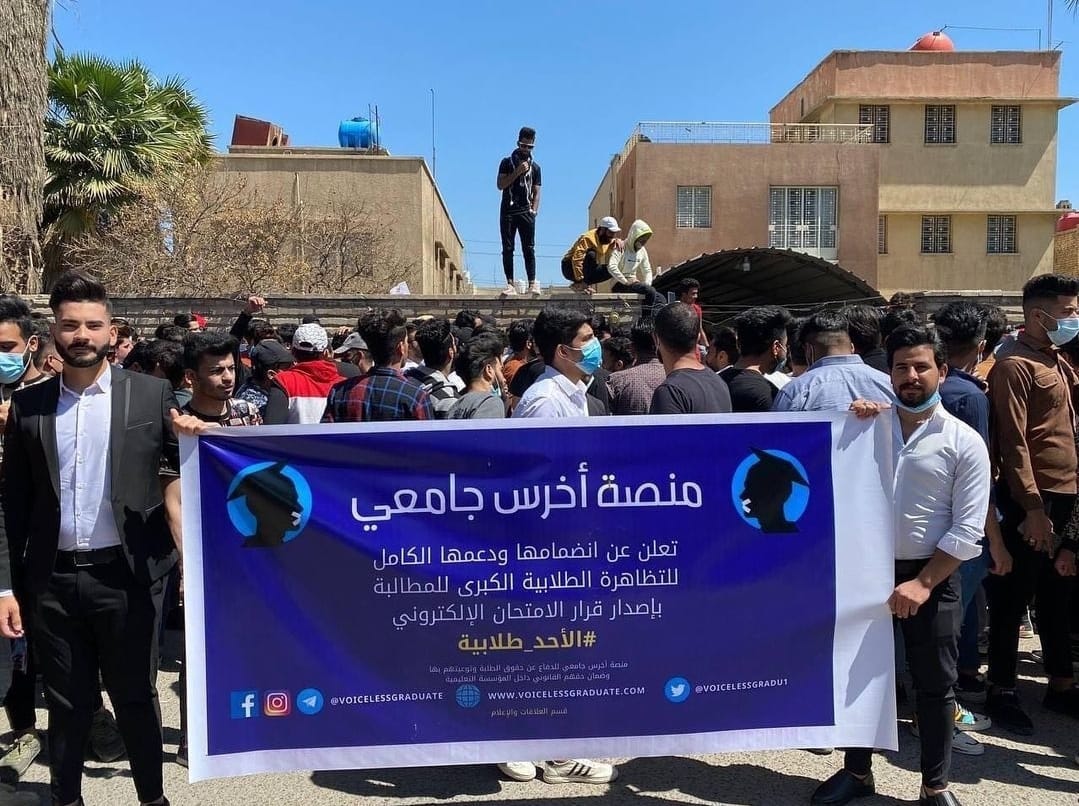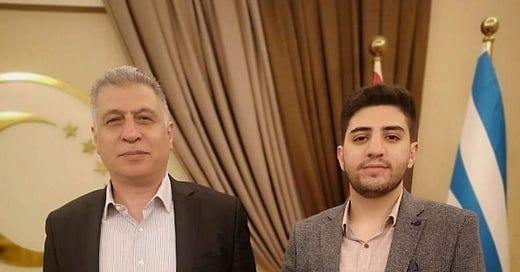"They Messed with the Wrong Student"
Mohammed Awchi fought back against the Iraqi academic establishment's suppression of free speech—and won
Mohammed Awchi has always been outspoken. At university, he often expressed views on social media, but he was careful not to mention names, focusing on broader issues within Iraq’s medical sector and the academic system. It didn’t come as a surprise when his university in the Iraqi city of Kirkuk called him in to discuss a post on Facebook. But he was shocked when they refused to release his exam results a few weeks later. “It’s awful how they deal with freedom of speech in our universities. Students are one of the weakest groups in Iraq,” he says.
It took Awchi a while to recover from the ordeal that followed after the dispute ended up in court. When he was finally cleared, he accepted a full scholarship in Turkey to complete his medical training abroad, losing several years in the process. “My classmates are all practicing doctors now. I still have two years left to qualify,” says the 26-year-old. Still, he doesn’t regret his actions, which drew national attention and helped to raise awareness about the injustices faced by students in Iraqi universities, where the consequences of speaking out can be severe.
Cultural clashes between old-school professors and students with liberal values are common in Iraq, but in most cases, students are forced to back down. “It’s very dark. Many of the professors are linked to political parties and students don’t have the power or money to defend themselves,” says Awchi. His case, however, proved the exception. “They messed with the wrong student,” he adds.
Nevertheless, it was a difficult time. After being refused access to his exam results in 2017, Awchi turned to social media and wrote about his predicament. He received a summons from the university administration to attend a committee hearing where he was shown screenshots of his posts and asked to explain them. When he stood by his words, he was temporarily expelled and asked to re-take the year. “They wanted to humiliate me and make me beg forgiveness, but I was on fire and I believed in freedom.”
What came next was even more unusual. Awchi continued posting about his situation and drew the attention of Iraqi media. He made multiple television appearances and drew hundreds of messages of support from across the country. Emboldened, he decided to appeal the university’s decision and applied to the Supreme Administrative Court in Baghdad. “The administration started spreading bad rumours about me, it was really hard,” he says.
Awchi’s family, who had supported him thus far, begged him to consider the consequences of taking on the academic establishment, concerned it could be dangerous. At the time, Kirkuk was going through a period of upheaval after Kurdish forces were ousted and Iranian-backed militias massed in the contested, oil-rich city. “It’s risky to cross these people because academics in Iraq are often linked to political parties that have ties with militias,” he says.
But to Awchi’s astonishment, he won the case in court. “Iraqi courts are not known for being supportive of free speech—but I got lucky,” says Awchi, who describes his victory as a miracle. “For the first time, a student took on an Iraqi university and forced them to overturn their decision.”
The process took over a year and reinforced to Awchi how vulnerable students are in Iraq. He decided to harness the momentum behind his case and establish an organization to defend student rights, calling it the Voiceless Graduate. He aims to protect students against academic bullying and widen the space for free speech in Iraqi universities. “If there is any hope for Iraq, it will be born in universities. These students are the future leaders of the country and we don’t want leaders who are oppressed.”

So far, the Voiceless Graduate has saved nine students from expulsion by helping them stand up to their universities. However, the broader effect has impacted many more, says Awchi, whose inbox is full of grateful messages from students across Iraq. His organization includes a core team of 10 volunteers who connect students with lawyers willing to take cases free of charge and advise them on the resources available. In the future, Awchi hopes to officially register the organization and work alongside the Iraqi government to change old laws that undermine free speech and re-activate student unions in Iraqi universities.
“We want to create a just environment for Iraqi students,” says Awchi, who believes these changes are possible, despite the challenges ahead. An Innovation Hub grant has allowed them to purchase new equipment to run webinars and workshops that will teach students how to tell their stories and stand up for their rights. “We need to move higher education away from politics. It represents our hope in the future and we want to create a healthy environment where students can grow, thrive, write, read and share their values and ideas,” he says.
This article was written by Olivia Cuthbert.




